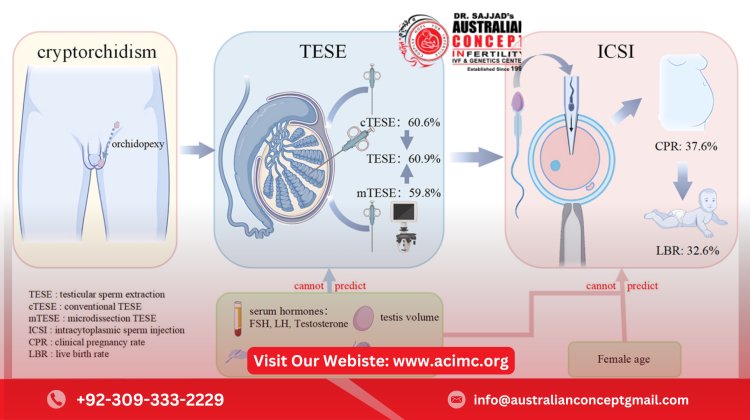Does Azoospermia Treatment Guarantee Pregnancy
Azoospermia treatment can improve the chances of conception but does not guarantee pregnancy. The success of treatment depends on the type of azoospermia—obstructive (caused by a blockage) or non-obstructive (due to sperm production failure). Surgical procedures, hormonal therapy, and sperm retrieval techniques like TESE and PESA can help retrieve sperm for assisted reproduction methods such as ICSI (Intracytoplasmic Sperm Injection). However, the outcome is influenced by factors like sperm quality, the female partner’s fertility, and the success rates of IVF or ICSI. In cases where treatment is unsuccessful, alternatives like sperm donation or adoption can be considered.

Azoospermia, a condition where no sperm is present in a man's semen, can be a significant hurdle to conception. However, modern medical advancements have made it possible for many men with azoospermia to father biological children. While azoospermia treatment can improve the chances of pregnancy, it does not guarantee success in every case. The effectiveness of treatment depends on several factors, including the underlying cause, the type of azoospermia, and the female partner's fertility health.
Understanding Azoospermia
Azoospermia is categorized into two main types:
- Obstructive Azoospermia (OA) – This occurs when sperm production is normal, but a blockage prevents sperm from reaching the semen.
- Non-Obstructive Azoospermia (NOA) – This results from a failure in sperm production, often due to genetic, hormonal, or testicular issues.
The treatment options and their success rates vary depending on which type a man has.
Treatment Options for Azoospermia
1. Surgical Treatment for Obstructive Azoospermia
- In cases of blocked sperm ducts, surgery can help restore sperm flow, making natural conception possible.
- If the obstruction cannot be corrected, sperm retrieval techniques like TESE (Testicular Sperm Extraction) or PESA (Percutaneous Epididymal Sperm Aspiration) can be used to collect sperm for assisted reproduction.
2. Hormonal Therapy for Non-Obstructive Azoospermia
- Hormonal imbalances affecting sperm production may be treated with medications like FSH, hCG, or clomiphene citrate to stimulate sperm development.
- However, this treatment is only effective in select cases and may take several months to show results.
3. Sperm Retrieval for Assisted Reproduction
- If sperm is present in small quantities, ICSI (Intracytoplasmic Sperm Injection) can be used to fertilize an egg directly.
- In NOA cases where no sperm is found, donor sperm may be an alternative option.
Does Azoospermia Treatment Lead to Pregnancy?
While azoospermia treatment improves the chances of conception, success is not guaranteed. The outcome depends on:
- The success of sperm retrieval methods (TESE, PESA, or micro-TESE).
- The quality of retrieved sperm and its ability to fertilize an egg.
- The female partner’s reproductive health, as factors like egg quality and uterine conditions also affect pregnancy rates.
- The IVF or ICSI success rate, which varies between clinics and patient conditions.
Alternative Options for Parenthood
If azoospermia treatment does not yield viable sperm, couples may consider:
- Adoption – A fulfilling option for couples unable to conceive biologically.
Conclusion:
Azoospermia treatment does not guarantee pregnancy but offers hope to many couples struggling with male infertility. With the right medical approach and assisted reproductive techniques like ICSI, many men with azoospermia can still achieve fatherhood. Consulting an experienced infertility specialist in Lahore can help determine the best treatment plan based on individual circumstances.
What's Your Reaction?
















